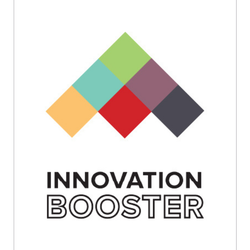
Open
Work-Sharing program
Last Update: October 27, 2025
Canada
Support for businesses to avoid layoffs
Grant and Funding
At a glance
Funding available
Financing goals
Improve employee retention
Develop employee skills
Eligible Funding
- No Condition
Timeline
- Open Date : June 25, 2023
- Closing date : November 4, 2023
Eligible candidates
Eligible Industries
- Manufacturing
- Accommodation and food services
- Other services (except public administration)
- Public administration
Location
- Canada
Legal structures
- Non-profit
- Public or Parapublic institution
- For-profit business
Annual revenue
- All revenue ranges
Organisation size
- 2 employees minimum
Audience
- Indigenous Peoples
- Canadians
Non-profit candidates
Sector of operation
- Emergency and Relief
- Economic, Social and Community Development
- Employment and Training
- Business Associations
- Unions
Target groups
- Business owners / entrepreneurs
- Nonprofits / charities
Revenue structures
- All structures
Scope
- Local
- Regional
- Provincial
- National
Overview
If your employees are eligible for Employment Insurance (EI) benefits, and your business is suffering a downturn, you can apply for a work-sharing agreement. The agreement would allow your employees to work a temporarily reduced work week while receiving
Activities funded
- Avoiding layoffs during a temporary decrease in business activity beyond employer control.
- Providing income support to employees eligible for EI benefits who work a reduced work week.
- Sharing available work equally among employees during the agreement term.
- Maintaining business viability during economic downturns, natural disasters, or national emergencies with special measures.
Examples of admissible projects:
$ 52,000
Running a work-sharing arrangement for the bakery staff to maintain jobs during seasonal downtime
$ 64,000
Setting up a work-sharing scheme for our restaurant staff to manage a decline in dine-in customers
$ 64,000
Implementing a work-sharing program for our IT department to avoid layoffs during a downturn
$ 95,000
Supporting theatre staff through a work-sharing agreement to cope with reduced ticket sales
$ 160,000
Introducing a work-sharing protocol for our manufacturing unit to counteract reduced orders
$ 35,000
Facilitating a work-sharing scheme for our artists' cooperative during gallery closures
Eligibility
- The employer must have been operating in Canada for a minimum of 1 year.
- The business must have a minimum of 2 employees who are eligible for Employment Insurance and agree to a reduction in hours and to share available work.
- For employers affected by U.S. tariffs or the Jasper and Bunibonibee Cree Nation wildfires, the business activity decline must be attributable to these events.
- Be a business new to the Work-Sharing program, have an existing Work-Sharing agreement, or be serving a mandatory cooling-off period.
- Non-profit and charitable organizations experiencing a reduction in revenue due to tariffs, cyclical or seasonal employers, and those without a recent 10% decrease in business activity may apply under certain special measures.
Who is eligible?
- Businesses operating in Canada for a minimum of 1 year
- Non-profit and charitable organizations
- Cyclical or seasonal employers
- Employers experiencing a decrease in work activity over the past six months of less than 10%
Who is not eligible
Some types of companies may not be eligible for the Work-Sharing Program grant. Not eligible companies include:
- Companies not experiencing a temporary decrease in business activity beyond their control
- Companies unable to meet the minimum 10% reduction in normal weekly earnings for all employees
Eligible expenses
This grant facilitates the maintenance of employment during temporary business declines beyond employers' control. Eligible activities under this program ensure equitable sharing of available work and support income stability for employees.
- Implementing reduced work schedules for employees to prevent layoffs.
- Engaging in Work-Sharing agreements involving employers, employees, unions (if applicable), and Service Canada.
- Applying for extensions when necessary to continue Work-Sharing agreements.
- Utilizing special measures during defined periods to address impacts from events like wildfires or economic downturns.
Eligible geographic areas
- Jasper, Alberta
- Bunibonibee Cree Nation, Manitoba
Selection criteria
There are evaluation and selection criteria for the Work-Sharing Program grant:
- Demonstrated temporary decrease in business activity beyond the employer's control
- Minimum 10% reduction in normal weekly earnings for all participating employees
- Agreement signed by employer, employees, and Service Canada
- Agreed reduced work schedule and equal sharing of available work
- Application submitted with employer/employee/union representatives
How to apply
1
Determine Eligibility
- Verify that your business and employees meet the eligibility criteria for the Work-Sharing Program.
- Ensure that there is a temporary decrease in business activity beyond your control.
2
Consultation with Employees
- Discuss the intention to enter a Work-Sharing agreement with employees.
- Obtain agreement from all parties involved, including the union, if applicable.
3
Prepare Application
- Complete the Work-Sharing application package, available on the Service Canada website.
- Gather necessary documents such as business activity reports and employee lists.
4
Submit Application
- Email the completed application package to the appropriate regional Work-Sharing Unit.
- Ensure submission is done well in advance to meet the minimum 10 business days processing time before the agreement start date.
5
Notification and Agreement Execution
- Wait for confirmation from Service Canada about the approval of the Work-Sharing agreement.
- Sign the agreement with Service Canada, employees, and union representatives, if applicable.
6
Implementation
- Begin the reduced work schedule as outlined in the agreement.
- Ensure equitable work distribution among employees.
7
Monitoring and Reporting
Regularly update Service Canada on the business’s recovery progress and any changes to the agreement.
Additional information
- Work-Sharing agreements approved under special measures related to external crises such as U.S. tariffs or natural disasters may allow for exceptions to standard terms, including extended duration and waived cooling-off periods.
- For agreements starting after September 25, 2022, a mandatory four-week advance notice is required for requesting an extension of the Work-Sharing agreement.
- The Work-Sharing program stipulates that agreements can only start on a Sunday to align with the Employment Insurance payment cycle.
- The program may introduce temporary special measures at any time to address specific events like economic downturns or natural disasters, providing tailored support based on the specific crisis circumstances.
- Businesses can utilize Work-Sharing during a defined period to ensure they maintain their workforce and operational viability in times of decreased business activity due to uncontrollable external factors.
Contacts
edsc.dgop.tp.rep-res.ws.pob.esdc@servicecanada.gc.ca
Canada
Apply to this program
Frequently Asked Questions about the Work-Sharing program Program
Here are answers to the most common questions about the Work-Sharing program. This section explains what the program is, how much funding is available, eligibility requirements, application deadlines, and other important details to help you determine if this grant is right for your business.
What is the Work-Sharing program?
What is the deadline to apply?
Who is eligible for the Work-Sharing program program?
What expenses are eligible under Work-Sharing program?
Who can I contact for more information about the Work-Sharing program?
Where is the Work-Sharing program available?
Is the Work-Sharing program a grant, loan, or tax credit?
Apply to this program
More programs like this

Grant and FundingClosed
Industrial Research Assistance Program (IRAP) – AI Assist
National Research Council Canada (NRC)Supports Canadian SMEs in adopting and integrating advanced AI solutions

Grant and FundingOpenClosing Soon
CanExport GAC-Led Delegations
Trade Commissioner Service (TCS)Cost-sharing support for SMEs joining GAC-led trade delegations

Tax CreditsOpen
Clean Technology Manufacturing (CTM) Investment Tax Credit (ITC)
Canada Revenue Agency (CRA)Incentivize Canadian companies to invest in clean technology

Partnering and CollaborationGrant and FundingOpen
Strategic Innovation Fund (SIF)
Innovation, Science and Economic Development Canada (ISED)Strategic Innovation Fund supports transformative Canadian economic investments

Grant and FundingOpen
AI-Powered Supply Chains Cluster (Scale AI)
Global Innovation Clusters (GIC)Funding to enhance supply chains with AI

Grant and FundingClosed
Green Industrial Facilities and Manufacturing Program (GIFMP) — Industrial Facility Track
Natural Resources Canada (NRCan)Support for the implementation of energy efficiency and energy management solutions

Grant and FundingClosed
Canada Public Transit Fund
Housing, Infrastructure and Communities Canada (HICC)Supports long-term public transit and active transportation infrastructure development

Grant and FundingClosed
CFIN Innovation Booster
Canadian Food Innovation Network (CFIN)Funding to advance and commercialize food innovation

Grant and FundingOpen
NRC IRAP – Support for clean technology
National Research Council Canada (NRC)Funding for Canadian SMEs advancing innovative clean technology commercialization

Grant and FundingClosed
Canada Service Corps – Service Placements Regional Stream
Employment and Social Development Canada (ESDC)Funding for organizations to develop youth volunteer service placements
Sign up to our platform to access the Work-Sharing program information sheet for free
Get access to 4,000+ programs, practical guides, personalized alerts, and an AI assistant to support your grant applications.